TRCU is the abbreviation term of “Technical Regulation of Customs Union”.
Technical regulation of the Eurasian Economic Union is a document adopted by the Eurasian Economic Commission, that establishes legally binding on the territory of the Union requirements to subjects of technical regulation. The full list of TRCU you can find here link [Rus ver.].
With the foundation of “EACU, Eurasian Customs Union” in 2010, signed by Russia, Kazakhstan, and Belarus, and with the establishment of “EEU, Eurasian Economic Union” in 2015, unified conformity assessment procedure was introduced to its serving member states. Currently, there are 5 member states: Russia, Kazakhstan, Belarus, Kyrgyzstan, and Armenia. In case of TRCU certification, TRCU certificate applies to use in every of 5 EEU countries.
TRCU certificate confirms that mentioned product conforms to the Technical regulation of the Eurasian Economic Union (Customs Union), and can be sold within the territory of EEU (CU).
TRCU certification procedures follow consolidated informative assessment code to validate products’ compliance to Customs Union requirements. During certification procedure, the applicant can chose the scheme of certification. You can read about certification schemes here link [Rus ver.].
Types of TRCU
There are two typical types of TRCU, (1) CoC (Certification of Conformity)and (2) DoC (Declaration of Conformity). Even within same product category/division, depending on details in product usage, specification, and potential danger levels, types can vary, therefore, to receive precise and up-to-date information on your products’ certification, consultation with experts is necessary.
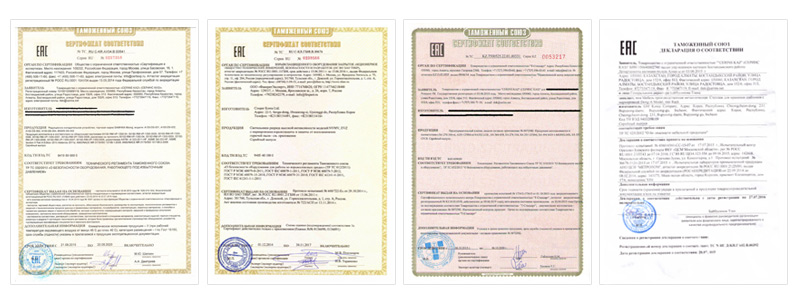
Certificates can be issued in two valid period types, one-shipment (one-batch) certificates, and serial production certificates.
Applicant: only legal entity/organization registered in the territory of the Customs Union.
Factory audit: serial production certificate requires factory audit including sample test or witness of test and regular post-audit as per validity period.
Lead-time: 1 to 2 weeks after the presentation of complete technical documents is provided, or after the factory audit, inspection including test is completed if applicable.
If production isn’t subjected for mandatory TR CU certification, but its compulsory for import, realization and use within the territory of RoK and contained in the List of products and services which subjected to mandatory certification, will be RoK requirements certification.
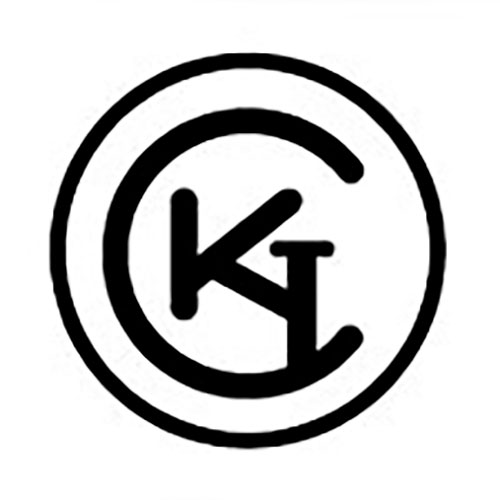
GOST (ГОСТ) - is the abbreviation for «GOsudarstvennyySTandart». GOST refers to a set of technical standards maintained by the Euro-Asian Council for Standardization, Metrology and Certification (EACS), a regional standards organization operating under the supervision of the Commonwealth of Independent States (CIS). Standard itself was originally developed by the Soviet Union government, however, after the disintegration of the USSR, standards acquired a new status of the regional standards. Since then, more than 20,000 standards were used extensively in 12 countries, serving to regulate countries in the region.
GOST R simply refers to GOST certificate in Russia, STB (Standard of the Republic of Belarus) for Belarus, ST RK (Standard of the Republic of Kazakhstan) for Kazakhstan and so on.
Certification (GOST K)
RoK certification (GOST K) performed in accordance with The Law of the Republic of Kazakhstan dated 9 November 2004 No.603 «On Technical Regulation», and Technical Regulation of Republic of Kazakhstan «compliance confirmation procedures».
RoK certificate confirm that product produced in accordance with standard requirements (GOST, ST RK etc.) and Technical Regulation of RoK. Standards ST RK are similar to standards of Russian Federation GOST R.
GOST K certificates are divided into GOST K CoC (mandatory Certificate of Conformity) and GOST K Voluntary CoC (voluntary Certificate of Conformity).
Mandatory certification is performed by legislation in the field of technical regulation and ensures the compliance of products (process, services) with the requirements of technical regulations and the mandatory requirements of standards
Voluntary certification is carried out on the initiative of legal entities or individuals on a contractual basis between the applicant and the certification body in voluntary certification systems. It is allowed to conduct voluntary certification in the systems of mandatory certification by bodies for mandatory certification. The regulatory document for which compliance tests are carried out with voluntary certification is usually chosen by the applicant. The applicant may be a manufacturer, supplier, seller, consumer products.
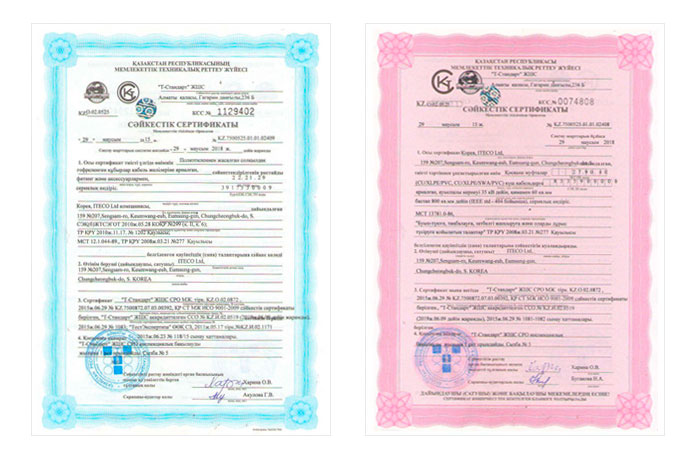
Goods, products subject to certification of the Republic of Kazakhstan are set out in the "List of products and services subject to mandatory certification" (link [Rus ver.]). Certification is required for customs clearance, the transaction and use of goods in Kazakhstan in accordance with the Government Decree No.367 dated 20/04/2005.
GOST K is a Kazakhstan national safety standard certificate. Since the imposition of Technical Regulations of Customs Union –TRCU, the areas of GOST K certification have decreased remarkably, but GOST K certification is still required for product standards which are not yet agreed among members of Eurasian Customs Union.
Certificates of the Republic of Kazakhstan can be issued only by certification bodies accredited by the National Center for Accreditation of the Republic of Kazakhstan (NCA).
One-shipment: validation date follows the period mentioned in a contract between importer and exporter. Commonly used in plant projects like one-off products or products not for resale to 3rd parties.
Serial production(1~3 years): continuous export/import is allowed only for a valid period.
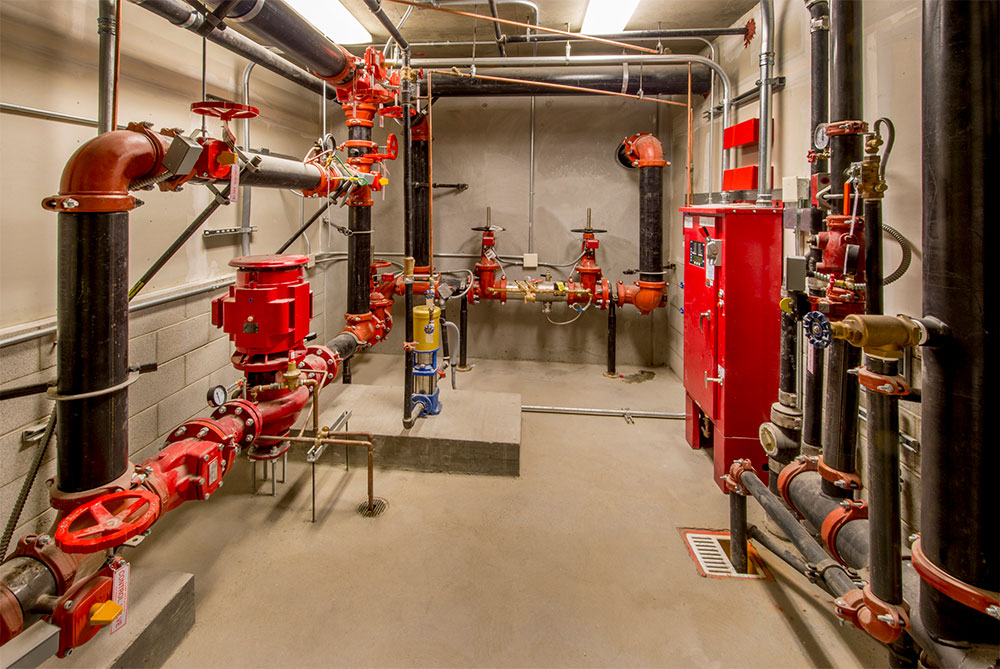
In accordance with Russian Federal Law No.123 of 22.06.2008, “Technical Regulation on Fire Safety, entered force on 01.05.2009”, prior to receiving conformity assessments (GOST R or TRCU), Fire safety certificate should be completed.
There is no separate Fire Safety Certification in Kazakhstan. However, in case of equipment that requires fire safety tests to issue GOST K certificate, fire safety test reports are mandatorily requested. CERINS provides fire safety test reports published by accredited laboratories in the territory of Kazakhstan.
Main products subject to fire safety tests are shown on the “Procedure for harmonization of regulatory documents on standardization with the bodies of the State Fire Service, ПР РК 64.1.01-97”.
Following products are subject to fire safety tests.
Detailed information is needed for checking whether the goods are subject to fire safety testing or not as per their characteristics, usage, etc. CERINS are ready to give all information after the receipt of this information.
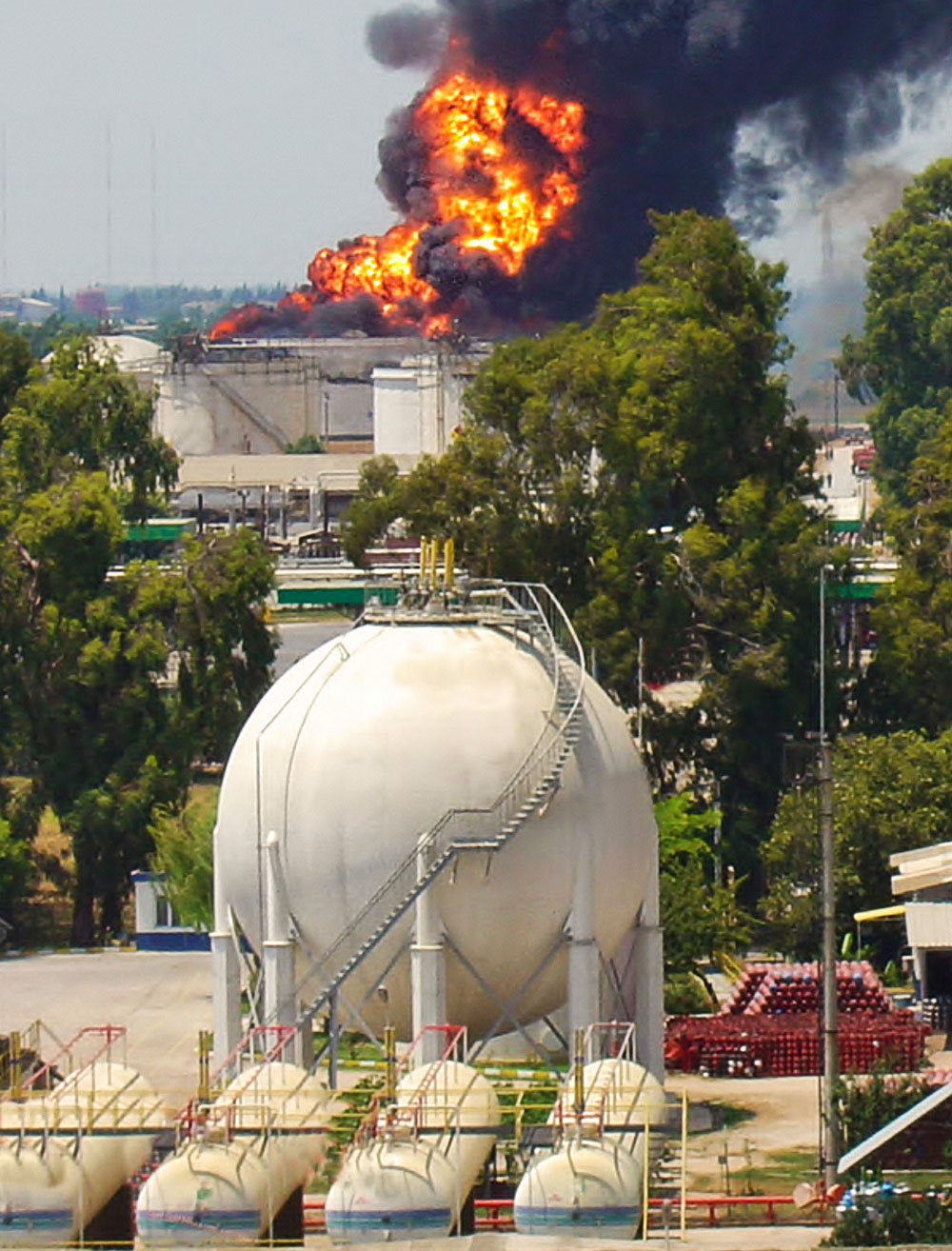
In accordance with “TRCU 012/2011, on the safety of equipment intended for use in explosive atmospheres”, Ex-rated equipment used in atmospheric conditions which contain explosive gas, vapor or duct requires a separate regulation to follow. These environment, regarded as hazardous areas, generally includes oil refineries, oil and petro-chemical industry, mines, and other industrial areas.
In principle, related regulation follows “the Decision of the Customs Union Commission No. 825 of 18.10.2011”. However, it shares a good amount of similarities to internationally well-known IEC Ex system, ATEX95, ATEX 137 Directives, etc.
If the applicant does not have ATEX or other similar international certificates, sample testing shall be performed by Russian accredited laboratory. Therefore, lead time and required document review works can vary case by case.
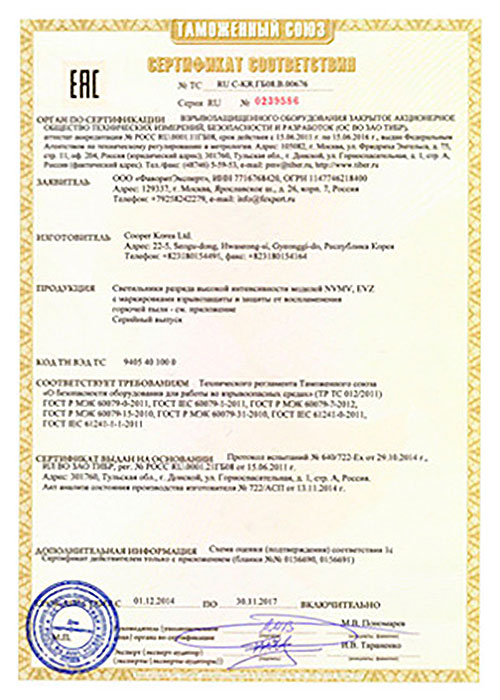
Certificates can be issued in two validity period types, one-shipment (one-batch) certificates, and serial production certificates.
Applicant: legal entity registered in accordance with the legislation of the member state of the customs union on its territory.
Factory audit: serial production certificate requires factory audit including sample test or witness of test and regular post-audit as per validity period.
Lead-time: 1 to 2 weeks after the presentation of complete technical documents is provided, or after the factory audit, inspection including test is completed if applicable.
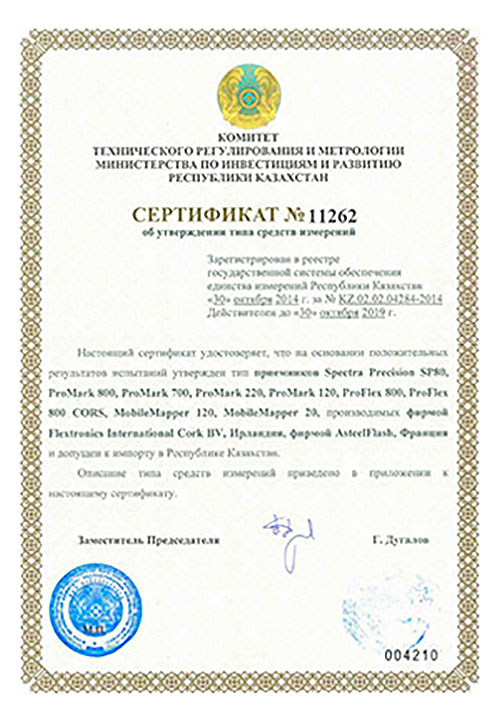
A metrological certificate, also known as a certificate of approval for a type of measuring instrument, is a certificate for measuring instruments.
Technical equipment, which is a measuring instrument before operation, shall be tested with the subsequent approval of the type of these measuring instruments. The procedure for approving the type of measuring instrument is set out in ST RoK 2.21-2017 «GSI RK. Procedure for testing and type approval of measuring instruments».
A measuring instrument is a technical instrument intended for measurement and having standardized metrological characteristics. The belonging of technical means to measuring instruments is established by RSE «Kazakhstan Institute of Metrology» (KazInMetr).
According to the Law of the Republic of Kazakhstan "On ensuring the uniformity of measurements," issue, application, realization and advertising of measurement means, subject to the state metrological control, not passed the test for the purposes of type approval or metrological certification shall be prohibited.
The validity of the certificate of approval of the type of measuring instruments - no more than 5 years
The validity of the certificate of approval of the type of batch of measuring instruments is indefinite
In addition to the approval of the type of MI there is a metrological certification of MI. Metrological certification of measurements means – establishment (confirmation) of correspondence of measurements means, produced or imported in single copies to the requirements of regulatory documents on ensuring the unity of measurements. The main difference is that metrological certification is issued per unit of equipment, while type approvals are issued per model /line / type of equipment.
You can find all the registered technical means in the Register of State Measuring Instruments (GSI RK) on the official site of RSE "KazInMetr".
Certificates are issued with attached documents, which indicate the scope, purpose, error, test interval and other information. The MI type approval process takes 3-4 months, the MI metrological certification process takes 2-3 months.
If you have any questions, please contact our experts! Contacts
TRCU is the abbreviation term of “Technical Regulation of Customs Union”. With the foundation of “EACU, Eurasian Customs Union” in 2010, signed by Russia, Kazakhstan and Belarus, and with the establishment of “EEU, Eurasian Economic Union” in 2015, unified conformity assessment procedure was introduced to its serving member states. Currently, with its 5 member states, Russia, Kazakhstan, Belarus, Kyrgyzstan and Armenia of EEU approved to adopt unified code of Technical Regulation and agreed to coordinate efforts to terminate national norms after its new regional certification procedure.

Introduction of TRCU directly affected all member states. Aims for single duty customs tariff, and single economic space throughout the member states eliminated inconveniency of obtaining each national (regional) GOST certificates for importers/exporters, and exempted custom duties/taxes within the union.
TRCU certification procedures follow consolidated informative assessment code to validate products’ compliance to Customs Union requirements. EAC mark on certificates refers to Eurasian Conformity, and the mark can be used for products certified under TRCU regulation. TRCU is the official regulation approved by the Union, supporting the conformity assessments within member states.
On the other hand, items not yet been included in unified TRCU lists may still need GOST certificates in accordance with each relative state. Therefore, to receive precise and up-to-date information on your products’ certification, consultation with experts is necessary.
There are two typical types of TRCU, (1) CoC (Certification of Conformity)and (2) DoC (Declaration of Conformity). Even within same product category/division, depending on details in product usage, specification, and potential danger levels, types can vary, therefore, to receive precise and up-to-date information on your products’ certification, consultation with experts is necessary.
The certification and declaration of products for technical regulations of the Customs Union, the applicant may only organization registered in the territory of the Customs Union.

Certificates can be issued in two valid period types, one-shipment (one-batch) certificates and serial production certificates.
Applicant: only legal entity/organization registered in the territory of the Customs Union.
Factory audit: serial production certificate requires factory audit including sample test or witness of test and regular post-audit as per validity period.
Lead-time: 1 to 2 weeks after the presentation of complete technical documents is provided, or after the factory audit, inspection including test are completed if applicable.

In accordance with “TRCU 012/2011, on the safety of equipment intended for use in explosive atmospheres”, Ex-rated equipment used in atmospheric conditions which contain explosive gas, vapor or duct requires a separate regulation to follow. These environment, regarded as hazardous areas, generally includes oil refineries, oil and petro-chemical industry, mines, and other industrial areas.
In principle, related regulation follows “the Decision of the Customs Union Commission No. 825 of 18.10.2011”. However, it shares good amount of similarities to internationally well-known IEC Ex system, ATEX95, ATEX 137 Directives, etc.
If the applicant does not have ATEX or other similar international certificates, sample testing shall be performed by Russian accredited laboratory. Therefore, lead time and required document review works can vary case by case.

Certificates can be issued in two validity period types, one-shipment (one-batch) certificates and serial production certificates.
Applicant: legal entity registered in accordance with the legislation of the member state of the customs union on its territory.
Factory audit: serial production certificate requires factory audit including sample test or witness of test and regular post-audit as per validity period.
Lead-time: 1 to 2 weeks after the presentation of complete technical documents is provided, or after the factory audit, inspection including test are completed if applicable.
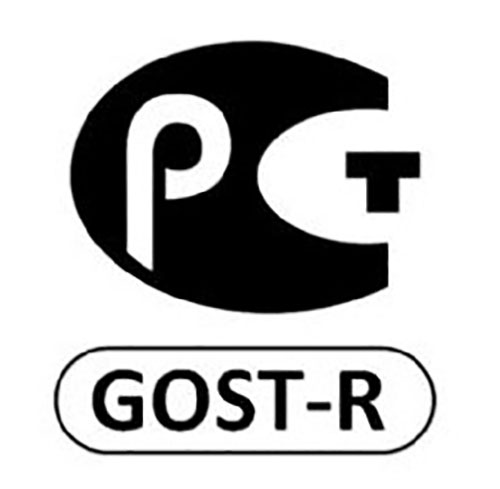
GOST (ГОСТ) is the abbreviation for GOsudarstvennyy STandart. GOST refers to a set of technical standards maintained by the Euro-Asian Council for Standardization, Metrology and Certification (EACS), a regional standards organization operating under the supervision of the Commonwealth of Independent States (CIS). Standard itself was originally developed by the Soviet Union government, however, after the disintegration of the USSR, standards acquired a new status of the regional standards. Since then, more than 20,000 standards were used extensively in 12 countries, serving to regulate countries in the region.
GOST R simply refers to GOST certificate in Russia, GOST B for Belarus, GOST K for Kazakhstan and so on.
After the introduction of TRCU, the unified conformity assessment system for member states of the Customs Union, equipment falls under mandatory GOST R lists dramatically decreased. However, some product groups are still included in mandatory GOST R certification list.
После введения сертификата ТР ТС, единой системы оценки соответствия для стран-участниц Таможенного союза, список оборудования, попадающие под обязательную сертификацию выдача ГОСТ Р резко сократилась. Тем не менее, на некоторые группы продуктов, все еще требуется обязательная сертификация ГОСТ Р для импорта в Россию.
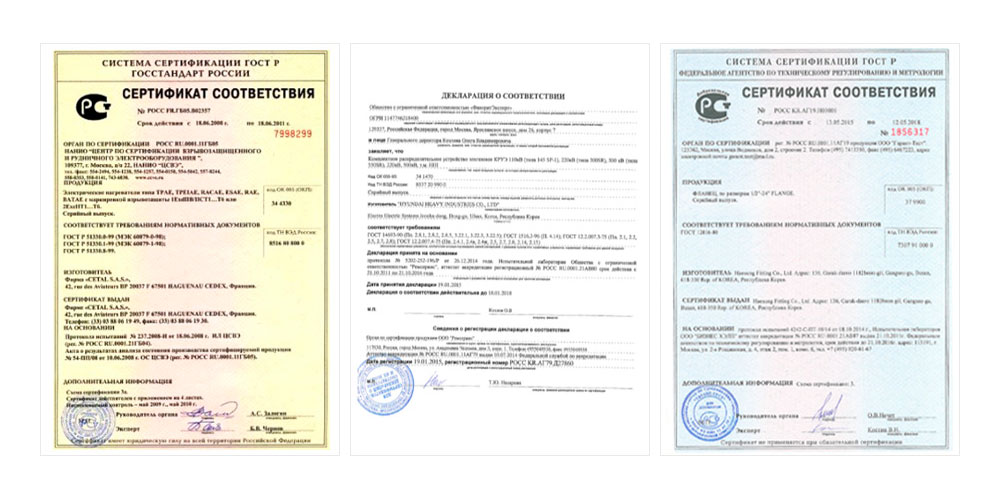
GOST R CoC
GOST R CoC, Certificate of Conformity is a form of mandatory certification, an approval of productsafety conformity as per requirements of the technical regulation (safety requirements).A certificate is printed on the yellow blank-form in accordance with the government regulation and Russian classification code for product (OKP). This conformity certificate is issued by an accredited certification body.
GOST R DoC
GOST R DoC, Declaration of Conformity is a form of simplified conformity certification, which will be completed based on documents provided by the customer. It requires the customer to sign on the certificate, and validation from certification body.
Voluntary GOST R certificate
Not all products are subject to mandatory certification or conformity assessment. However, in accordance with No.64 Resolution of GOSSTANDART, a voluntary GOST R certificate can be issued based upon documents provided by the applicant voluntarily to increase its chance of sales possibilities when entering Russian market. Many times, it is also requested by Russian importers to other international exporters/manufacturers for assurance.
Certificates can be issued in two valid period types, one-shipment (one-batch) certificates and serial production certificates.
Factory audit: serial production certificate requires factory audit including sample test or witness of test and regular post-audit as per validity period.
Lead-time: 1 to 2 weeks after the presentation of complete technical documents is provided, or after the factory audit, inspection including test are completed if applicable.

ISE is the abbreviation term of Industrial Safety Expertise. It is an expert conclusion report about safety, reviewed and conducted in accordance with No.116-ФЗ, 21.07.1997 “Industrial Safety in Hazardous Industrial Facilities”. It is a replacement form of previously known RTN approval, “Permit to Use” certificate. It states that the goods which are classified into dangerous goods and installed in dangerous areaare in conformity with safety regulationsstipulated in the Law of Rostechnadzor No. 538, 14.11.2013.
Since 2014, previously used RTN approval has been terminated and new rules instead of RTN approval came to appear under name of industrial safety expertise (ISE). This ISE is not mandatory, but some clients want to receive ISE additionally for their safer operation at site.
General guideline for reviewing procedure and reviewing contents still follows the Federal Law, No.116-ФЗ, 21.07.1997.
Examination of operation scope and process of dangerous goods, equipment, or whole plant/facilities:
After thorough review and analysis of above points, and after on-site audits, expert makes “Industrial Safety Expert’s Opinion”. As per results of ISE, facility operation can be determined by end-users.
CERINS will be glad to support you in preparation of above procedure, and please feel free to contact us for further advises.

RTN Approval is required for the usage of below equipment related to flammable, explosive, or industry hazardous areas which may cause danger to human being and ecology. The approval gives the right to the Russian end-user to start-up the mentioned equipment or permission for their operation.
However, followed by the introduction of amendment degree No.22-ФЗ 04.03.2013 “on Amendments to the Federal Law”, the existing RTN approval issuance system was abolished as of Jan. 1,2014.
“Execution of the state function of issuing permits for the use of technical devices at hazardous production facilities on the basis and in accordance with the Federal Law of 21.07.1997 number 116-FZ “On industrial safety of hazardous production facilities” Regulations on the Federal Service for Ecological, Technological and Nuclear Supervision, approved by decree of the Government of the Russian Federation of 30.06.2004 number 401, in the manner and terms established by the Administrative regulations of the Federal environmental, industrial and Nuclear Supervision on execution of the state function of issuing permits for the use of certain (types) of technical devices at hazardous production facilities, approved by Order of Federal service for ecological, technological and Nuclear Supervision of 29.02.2008 №112 (registered in the Russian Ministry of Justice 19.03.2008 number 11363, hereinafter – Regulation).
Please note that pursuant to paragraph “6)” Article 1 of the Federal Law of March 4, 2013 № 22-FZ “On Amendments to the Federal Law” On industrial safety of hazardous production facilities “Certain Legislative Acts of the Russian Federation and on the recognition of invalid sub-114 paragraph 1 of article 333.33 of the Tax Code of the Russian Federation “(hereinafter – the Federal law №22-FZ) article 7 of the Federal law of July 21, 1997 № 116-FZ” on industrial safety of hazardous production facilities “amended , that the mandatory requirements for technical devices used at hazardous production facilities, and the shape of their conformity assessment specified mandatory requirements established in accordance with the Russian Federation on technical regulation legislation, in this case in accordance with paragraph 3 of article 11 of the Federal law № 22-FZ specified the change shall come into force on January 1, 2014.”
Since 2014, previously known RTN approvals (Permit to Use) is replaced by a form of Industrial Safety Expertise Reports, introduced after the Order of Rostekhnadzor No.538, 14.11.2013 (registered Ministry of Justice of Russia 26.12.2013, reg. no. 30855). ISE (Industrial Safety Expertise) is basically the same procedure as RTN approvals as its basic concepts and serving regulations remain as specified in the Federal Law No.116-ФЗ, 21.07.1997, except, with only changes in responsible body being shifted from a government ministry to a registered expert.
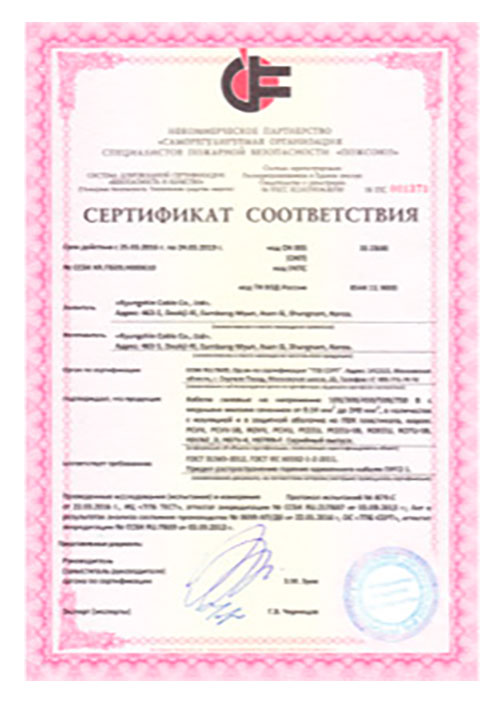
In accordance with Russian Federal Law No.123 of 22.06.2008, “Technical Regulation on Fire Safety, entered force on 01.05.2009”, prior to receiving conformity assessments (GOST R or TRCU), Fire safety certificate should be completed.
In accordance with Russian Federal Law No.241 of 17.03.2009, below product divisions are also mandatory objects requiring fire safety certificates:
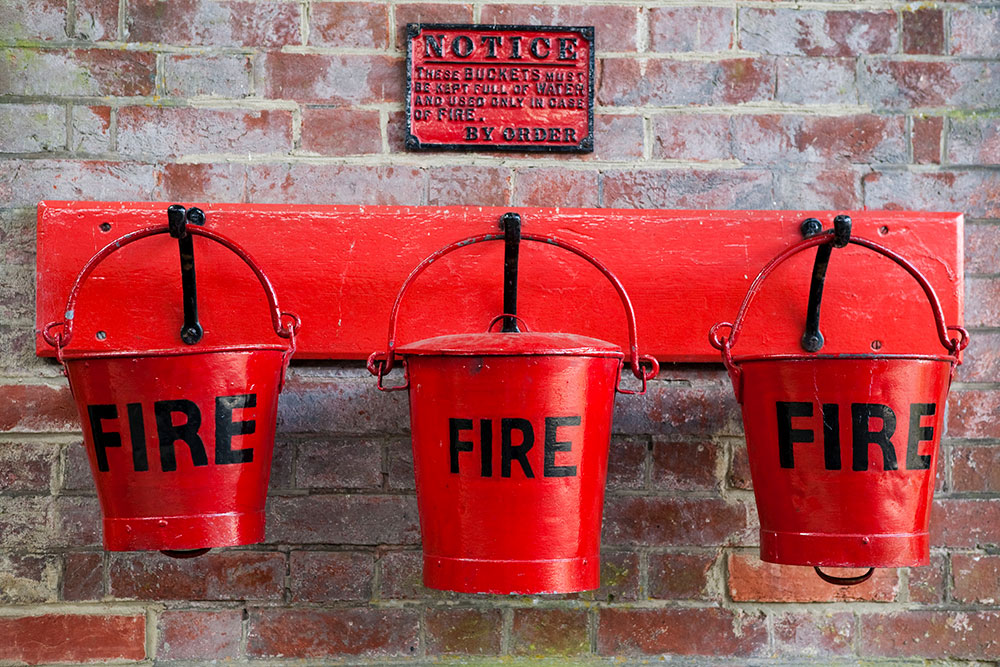
Fire Safety Certification is specialized regulation which determines the fire safety requirements to products’ design, manufacture, operation, etc. as per each applicable requirement. It is to ensure safety of people and protect property in case of fire protection and prevention.
Fire Safety Certification can be issued for shipment base, or serial production base from 1 to maximum 3 years.
Fire Safety Certificate is a document that certifies compliance with standards of fire safety products and issued for each type of product prescribed in their own fire safety requirements and test methods set out in the relevant national standards and technical regulations on products.
This fire safety certificate is realized in the form of voluntary or compulsory (mandatory declaration of conformity or certification).
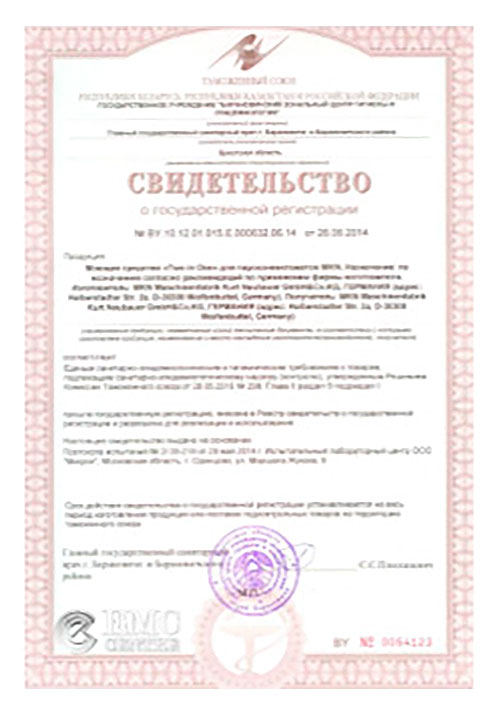
After the introduction of Decision of CU Commission No.299, 28.05.2010, Sanitary-Epidemiological Certificatesalso known as Hygienic Certificates has been unified within the Customs Union member states. Recently new name of this certificate, “State Registration”has been introduced and has been used throughout member states since 2012.
As per Decision of CU Commission No.299, 28.05.2010, the below are major objects requiring state registration.Products that require drafting state registration certificates is set forth in the Unified List of Goods subject to Sanitary and Epidemiological Monitoring at the Customs Border and within the Customs Area of the Customs Union.Mineral water, bottled drinking water, soft drinks, alcoholic drinks – including low alcohol and tonic drinks
Special foods, which include baby food, food for pregnant and breastfeeding women, dietary products, food for athletes, biologically active food additives, organic products, supplements

Full list of products subject to the official registration in the territory of the CU is also available via www.rospotrebnadzor.ru
State registration certificate is an official document that certificates that the goods that passed the state registration procedure complies with the Unified Sanitary, Epidemiological and Hygienic Requirements set forth within the EEU Customs Union member states.Authorized bodies of the EEU Customs Union member states issue state registration certificates
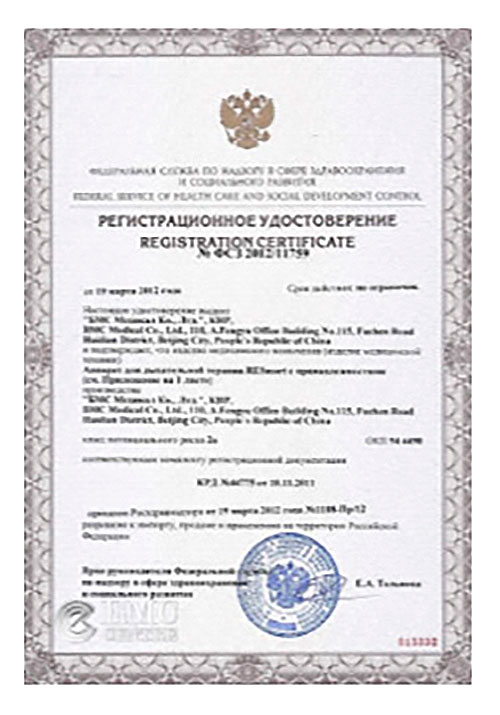
Under supervision of the Federal Service for Supervision of Welfare – ROSZDRAVNADZOR, medical device registration (certificate) is issued. It is issued and recorded by the Federal Service of Welfare, in accordance with Russian Federal Law No.323-FZ 21.09.2011 “On fundamental healthcare principles in the Russian Federation”. Following is what is defined as medical device by the order, which require medical device registration.
Any instrument, apparatus, appliances, equipment, materials and other products used for medical purposes, alone or in combination with each other, and together with the other accessories necessary for the application to these products for the medical purpose, including special software, designed and manufactured for the prevention, diagnostic, treatment and rehabilitation of diseases, and monitoring the state of the human body;
Medical devices for research, rehabilitation, replacement, change the anatomical structure or physiological functions of human body;
Some medical devices recognized as interchangeable tools, accessories, or parts if they can be substituted or replaced in functionality, quality and technical characteristics.
Medical products are classified as per the degree of potential risk of application on medical purpose, and followings are major objects which fall under each different class.
CLASS 1 – LOW-RISK PRODUCTS:
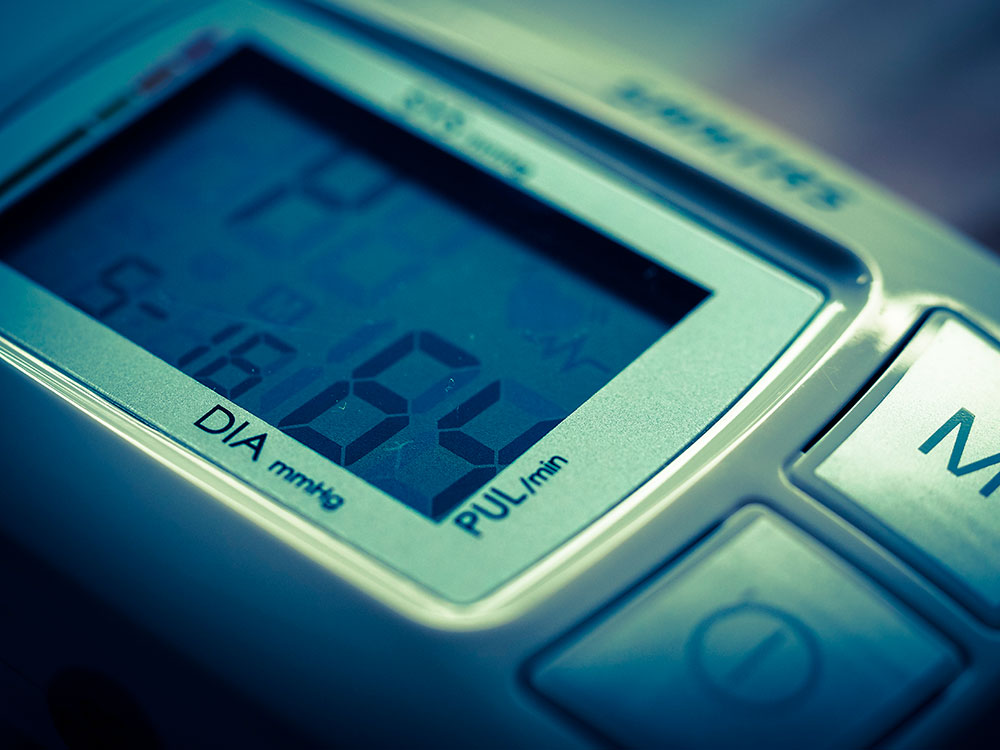
CLASS 2A – PRODUCTS WITH AVERAGE RISK:
CLASS 3 – HIGH-RISK PRODUCTS:

Medical Registration and Certification is rather complicate, comparing to other certifications or registrations. It is directly connected to human health protection, which requires proper clinical test and efficiency evaluation reports to be submitted and reviewed by the committee.
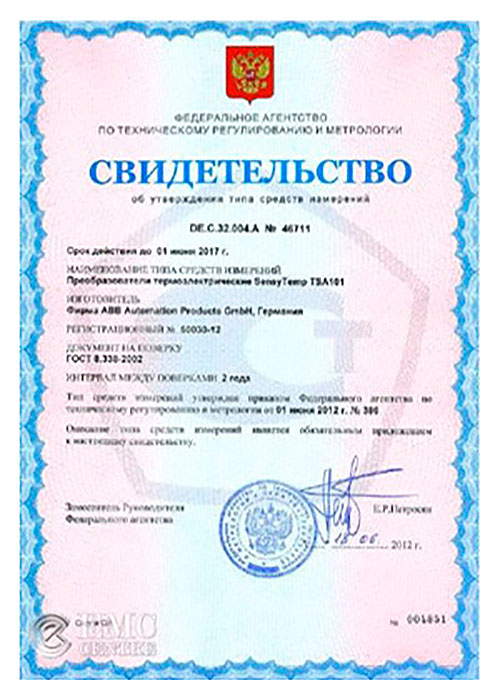
Pattern Approval (Metrology Certificate) is a certificate for measuring and testing instruments. In accordance with No.102-FZ, 13.07.2015 “On Measurement Uniformity”, under supervision of the Federal Agency for Technical Regulation and Metrology – Rosstandart, it is required to obtain pattern approval for equipment categorized under below listing.
Major Pattern Approval Objects

When a Pattern Approval certificate (Metrology Certificate) is issued, it is issued with a registering number, which is available via online website of the Rosstandart, showing applied and registered brands, types, models, and manufacturer’s information as well as its validation. Maximum validate period of pattern approval certification is 5 years.
Certificate is issued with attachments, which shows products’ application, error range, calibration period, and reference regulations. Lead time for obtaining a pattern approval certificate is about 2-3 months after a package of full technical document is submitted, and a sample test, as required.
Certificate may be issued either for a single product or batch of products, or for mass production and the maximum period of the certificate validity is 5 years.
The measuring instruments, intended for use in the area of state regulation ensuring the uniformity of measurements, are subject to initial verification prior to commissioning and after repairs, and are subject to periodic verification while in operation.

RFC (Radio-Frequency Center) Certification is also known as Radio Frequency Conclusion or Radio Certificate. It is related to FSS(Federal Security Service) notification and EAC license in terms of radiofrequency certification and in accordance with RFC requirement, the certificate is issued with the maximum 1 year validity.
Major RFC Certificate Objects:
Electrical equipment not related to high frequency application including ultrasonic wave, radiation, and infrared rays are not classified into RFC certification requirements. However, as per wireless systemsand functions requiring RFC certification, some goods may be involved. Therefore, to receive precise and up-to-date information on your products’ certification, close consultation with experts is necessary prior to the shipment.
In accordance with Decision of the Board of the Eurasian Economic Commission No.109, 1.9.2015 and the amendment No.131, 10.06.2015, FSS notification (Federal Security Service Notification) is required for equipment containing encrypted code, or application with encryption.
The related hardware or software, including pre-programmed device with encryption system requires FSS notification prior to its arrival at the customs border of the Customs Union. FSS notification is also known as FSB notification, encryption certificate, cryptography certificate, etc.
Major FSS Notification Objects:
FSS Notification does not have specified validity of period.
TRCU is the abbreviation term of “Technical Regulation of Customs Union”. With the foundation of “EACU, Eurasian Customs Union” in 2010, signed by Russia, Kazakhstan and Belarus, and with the establishment of “EEU, Eurasian Economic Union” in 2015, unified conformity assessment procedure was introduced to its serving member states. Currently, with its 5 member states, Russia, Kazakhstan, Belarus, Kyrgyzstan and Armenia of EEU approved to adopt unified code of Technical Regulation and agreed to coordinate efforts to terminate national norms after its new regional certification procedure.

Introduction of TRCU directly affected all member states. Aims for single duty customs tariff, and single economic space throughout the member states eliminated inconveniency of obtaining each national (regional) GOST certificates for importers/exporters, and exempted custom duties/taxes within the union.
TRCU certification procedures follow consolidated informative assessment code to validate products’ compliance to Customs Union requirements. EAC mark on certificates refers to Eurasian Conformity, and the mark can be used for products certified under TRCU regulation. TRCU is the official regulation approved by the Union, supporting the conformity assessments within member states.
On the other hand, items not yet been included in unified TRCU lists may still need GOST certificates in accordance with each relative state. Therefore, to receive precise and up-to-date information on your products’ certification, consultation with experts is necessary.
There are two typical types of TRCU, (1) CoC (Certification of Conformity)and (2) DoC (Declaration of Conformity). Even within same product category/division, depending on details in product usage, specification, and potential danger levels, types can vary, therefore, to receive precise and up-to-date information on your products’ certification, consultation with experts is necessary.
The certification and declaration of products for technical regulations of the Customs Union, the applicant may only organization registered in the territory of the Customs Union.

Certificates can be issued in two valid period types, one-shipment (one-batch) certificates and serial production certificates.
Applicant: only legal entity/organization registered in the territory of the Customs Union.
Factory audit: serial production certificate requires factory audit including sample test or witness of test and regular post-audit as per validity period.
Lead-time: 1 to 2 weeks after the presentation of complete technical documents is provided, or after the factory audit, inspection including test are completed if applicable.

In accordance with “TRCU 012/2011, on the safety of equipment intended for use in explosive atmospheres”, Ex-rated equipment used in atmospheric conditions which contain explosive gas, vapor or duct requires a separate regulation to follow. These environment, regarded as hazardous areas, generally includes oil refineries, oil and petro-chemical industry, mines, and other industrial areas.
In principle, related regulation follows “the Decision of the Customs Union Commission No. 825 of 18.10.2011”. However, it shares good amount of similarities to internationally well-known IEC Ex system, ATEX95, ATEX 137 Directives, etc.
If the applicant does not have ATEX or other similar international certificates, sample testing shall be performed by Russian accredited laboratory. Therefore, lead time and required document review works can vary case by case.

Certificates can be issued in two validity period types, one-shipment (one-batch) certificates and serial production certificates.
Applicant: legal entity registered in accordance with the legislation of the member state of the customs union on its territory.
Factory audit: serial production certificate requires factory audit including sample test or witness of test and regular post-audit as per validity period.
Lead-time: 1 to 2 weeks after the presentation of complete technical documents is provided, or after the factory audit, inspection including test are completed if applicable
.
TRCU is the abbreviation term of “Technical Regulation of Customs Union”. With the foundation of “EACU, Eurasian Customs Union” in 2010, signed by Russia, Kazakhstan and Belarus, and with the establishment of “EEU, Eurasian Economic Union” in 2015, unified conformity assessment procedure was introduced to its serving member states. Currently, with its 5 member states, Russia, Kazakhstan, Belarus, Kyrgyzstan and Armenia of EEU approved to adopt unified code of Technical Regulation and agreed to coordinate efforts to terminate national norms after its new regional certification procedure.

Introduction of TRCU directly affected all member states. Aims for single duty customs tariff, and single economic space throughout the member states eliminated inconveniency of obtaining each national (regional) GOST certificates for importers/exporters, and exempted custom duties/taxes within the union.
TRCU certification procedures follow consolidated informative assessment code to validate products’ compliance to Customs Union requirements. EAC mark on certificates refers to Eurasian Conformity, and the mark can be used for products certified under TRCU regulation. TRCU is the official regulation approved by the Union, supporting the conformity assessments within member states.
On the other hand, items not yet been included in unified TRCU lists may still need GOST certificates in accordance with each relative state. Therefore, to receive precise and up-to-date information on your products’ certification, consultation with experts is necessary.
There are two typical types of TRCU, (1) CoC (Certification of Conformity)and (2) DoC (Declaration of Conformity). Even within same product category/division, depending on details in product usage, specification, and potential danger levels, types can vary, therefore, to receive precise and up-to-date information on your products’ certification, consultation with experts is necessary.
The certification and declaration of products for technical regulations of the Customs Union, the applicant may only organization registered in the territory of the Customs Union.

Certificates can be issued in two valid period types, one-shipment (one-batch) certificates and serial production certificates.
Applicant: only legal entity/organization registered in the territory of the Customs Union.
Factory audit: serial production certificate requires factory audit including sample test or witness of test and regular post-audit as per validity period.
Lead-time: 1 to 2 weeks after the presentation of complete technical documents is provided, or after the factory audit, inspection including test are completed if applicable.

In accordance with “TRCU 012/2011, on the safety of equipment intended for use in explosive atmospheres”, Ex-rated equipment used in atmospheric conditions which contain explosive gas, vapor or duct requires a separate regulation to follow. These environment, regarded as hazardous areas, generally includes oil refineries, oil and petro-chemical industry, mines, and other industrial areas.
In principle, related regulation follows “the Decision of the Customs Union Commission No. 825 of 18.10.2011”. However, it shares good amount of similarities to internationally well-known IEC Ex system, ATEX95, ATEX 137 Directives, etc.
If the applicant does not have ATEX or other similar international certificates, sample testing shall be performed by Russian accredited laboratory. Therefore, lead time and required document review works can vary case by case.

Certificates can be issued in two validity period types, one-shipment (one-batch) certificates and serial production certificates.
Applicant: legal entity registered in accordance with the legislation of the member state of the customs union on its territory.
Factory audit: serial production certificate requires factory audit including sample test or witness of test and regular post-audit as per validity period.
Lead-time: 1 to 2 weeks after the presentation of complete technical documents is provided, or after the factory audit, inspection including test are completed if applicable.
TRCU is the abbreviation term of “Technical Regulation of Customs Union”. With the foundation of “EACU, Eurasian Customs Union” in 2010, signed by Russia, Kazakhstan and Belarus, and with the establishment of “EEU, Eurasian Economic Union” in 2015, unified conformity assessment procedure was introduced to its serving member states. Currently, with its 5 member states, Russia, Kazakhstan, Belarus, Kyrgyzstan and Armenia of EEU approved to adopt unified code of Technical Regulation and agreed to coordinate efforts to terminate national norms after its new regional certification procedure.

Introduction of TRCU directly affected all member states. Aims for single duty customs tariff, and single economic space throughout the member states eliminated inconveniency of obtaining each national (regional) GOST certificates for importers/exporters, and exempted custom duties/taxes within the union.
TRCU certification procedures follow consolidated informative assessment code to validate products’ compliance to Customs Union requirements. EAC mark on certificates refers to Eurasian Conformity, and the mark can be used for products certified under TRCU regulation. TRCU is the official regulation approved by the Union, supporting the conformity assessments within member states.
On the other hand, items not yet been included in unified TRCU lists may still need GOST certificates in accordance with each relative state. Therefore, to receive precise and up-to-date information on your products’ certification, consultation with experts is necessary.
There are two typical types of TRCU, (1) CoC (Certification of Conformity)and (2) DoC (Declaration of Conformity). Even within same product category/division, depending on details in product usage, specification, and potential danger levels, types can vary, therefore, to receive precise and up-to-date information on your products’ certification, consultation with experts is necessary.
The certification and declaration of products for technical regulations of the Customs Union, the applicant may only organization registered in the territory of the Customs Union.

Certificates can be issued in two valid period types, one-shipment (one-batch) certificates and serial production certificates.
Applicant: only legal entity/organization registered in the territory of the Customs Union.
Factory audit: serial production certificate requires factory audit including sample test or witness of test and regular post-audit as per validity period.
Lead-time: 1 to 2 weeks after the presentation of complete technical documents is provided, or after the factory audit, inspection including test are completed if applicable.

In accordance with “TRCU 012/2011, on the safety of equipment intended for use in explosive atmospheres”, Ex-rated equipment used in atmospheric conditions which contain explosive gas, vapor or duct requires a separate regulation to follow. These environment, regarded as hazardous areas, generally includes oil refineries, oil and petro-chemical industry, mines, and other industrial areas.
In principle, related regulation follows “the Decision of the Customs Union Commission No. 825 of 18.10.2011”. However, it shares good amount of similarities to internationally well-known IEC Ex system, ATEX95, ATEX 137 Directives, etc.
If the applicant does not have ATEX or other similar international certificates, sample testing shall be performed by Russian accredited laboratory. Therefore, lead time and required document review works can vary case by case.

Certificates can be issued in two validity period types, one-shipment (one-batch) certificates and serial production certificates.
Applicant: legal entity registered in accordance with the legislation of the member state of the customs union on its territory.
Factory audit: serial production certificate requires factory audit including sample test or witness of test and regular post-audit as per validity period.
Lead-time: 1 to 2 weeks after the presentation of complete technical documents is provided, or after the factory audit, inspection including test are completed if applicable
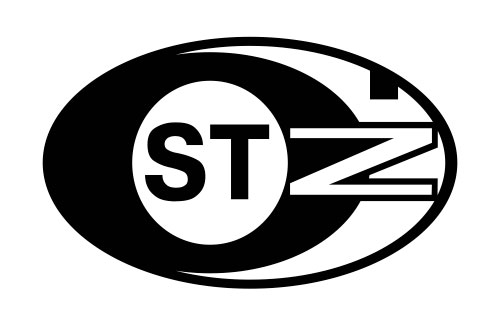
GOST (ГОСТ) is the abbreviation term for GOsudarstvennyySTandart. GOST refers to a set of technical standards maintained by the Euro-Asian Council for Standardization, Metrology and Certification (EACS), a regional standards organization operating under the supervision of the Commonwealth of Independent States (CIS). Standard itself was originally developed by the Soviet Union government, however, after the disintegration of the USSR, standards acquired a new status of the regional standards. Since then, more than 20,000 titles were used extensively in 12 countries, serving to regulate countries in the region.
GOST R simply refers to GOST certificate in Russia, GOST B for Belarus, GOST K for Kazakhstan and so on.

GOST UZ is a technology standard certificate issued in Uzbekistan. Currently, Uzbekistan is one of the CIS countries that has not joined the Eurasian Customs Union, and the TRCU (EAC) certificate is not valid, so that, GOST UZ certificate is treated apart from TRCU and required separately. The certification process is carried out in accordance with the “ПостановлениеКабинетаМинитетаМинистров (Resolution of the Cabinet of Ministers)” No.318, 06.07.2004, and the list of compulsory certification items on No.122, 28.04.2011 is GOST UZ certified in accordance with “Приказгенеральногодиректора УАСМС Узстандарт (Order of General Director of Uzstandard)” No.83, 04.03.2005.
The GOST UZ certificate is divided into GOST UZ CoC (conformity certification) and GOST UZ DoC (Declaration certification), depending on the product details.
GOST UZ certificates, like GOST R certifications, are divided into one-shipment and serial certification depending on the validity period.
The GOST UZ certificate differs from GOST R in a number of areas, as shown below.
Therefore, for accurate guidance on GOST UZ certification, it is necessary to clarify the following points and consult with expert.

Согласно ТР ТС 012/2011, оборудование, предназначенное для работы на опасных производственных объектах во взрывоопасных средах, до выпуска на рынок Таможенного союза обязано пройти подтверждение соответствия требованиям Технического регламента Таможенного союза “О безопасности оборудования для работы во взрывоопасных средах” Такие взрывоопасные среды встречаются на нефтеперерабатывающих заводах, в нефте-химической промышленности, и прочих промышленных площадках
Соответствующий техрегламент в основном действует в соответствии с “Решением комиссии Таможенного союза № 825 от 18.10.2011”. Однако, данный техрегламент имеет схожую характеристику с международными стандартами, как система МЭК Ex, директивами ATEX 95, ATEX 137 и тд
Если у заявителя нет сертификата ATEX, то необходимо провести испытание образцов в России, а обработка документации должна быть уже завершена. В связи с этим, в определенных случаях время выполнения заказа и обработки необходимой документации могут варьироваться

Существует сертификация продукции на партию (одну партию) и на серию (серийный выпуск).
Заявитель: юридическое лицо, зарегистрированное в соответствии с законодательством государства – члена Таможенного союза на его территории
Анализ производства: Для серийного выпуска сертификатов требуются образцы испытаний или анализ производства и регулярные проверки в течении срока действия сертификата
Время выполнения: 1-2 недели после предоставления полного пакета документов или после анализа производства, также при необходимости после завершающей инспекции производства.

UkrSEPRO is a product compatibility certification system used in Ukraine. Just as Russian GOST and TRCU certification, Ukr SEPRO system manages and controls schemes of mandatory certification. Currently the system is run by the State Committee of Ukraine and the National Body on Certification (the State Standard of Ukraine)
Certificates are divided into two types according to product type and details – mandatory certification and voluntary certification. Schemes of mandatory certification are decided by the list of products of obligatory certification in Ukraine as of 01.01.2011, which came into force by the Oder of State Department on Consumer Standards of Ukraine of 04.05.2005 N466/10746. Both mandatory and voluntary certificates are issued by approved certificate bodies. Please consult an expert for detailed quotation.
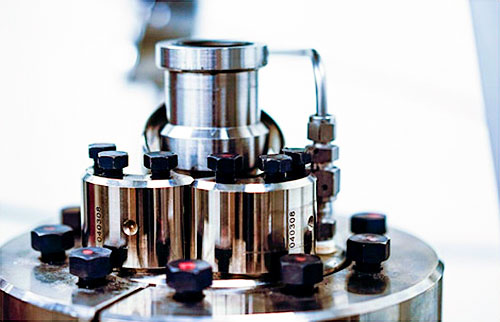
UkrSEPRO certificates are split into 4 types by their expiration date:
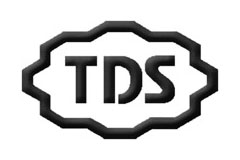
All products imported into Turkmenistan are required to have a certificate for the customs clearance. Unlike other CIS certification system, once the certificate is issued, it is valid without expiration for the model, meaning, same model of products can be imported with the certificate issued at first time. Turkmenistan TDS (aka GOST TDS) is issued after testing of relevant laboratory in case necessary.

If the product has a Russian GOST R, the agency will review the specifications applied at the time of issuance, and determine whether Turkmenistan regulation suits and applicable, and can make the whole process easier. In this case of measuring instruments, there is a separate certification system, as in for other CIS countries, and it is issued after a sample test or a manufacturer factory audit.
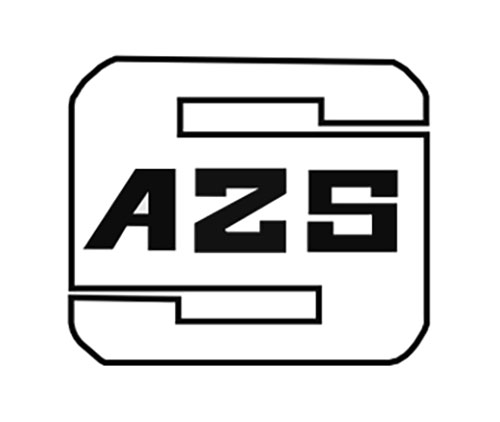
The certificate of conformity assessment for Azerbaijan is one of necessary documents for customs clearance for products which require certification in accordance with the list of items declared by the government. The is available on the website of the Azerbaijan Customs Service. Depends on expert’s decision, certificate can be issued after the installation at site after submission of related documents for conditional customs clearance.
At present, Azerbaijan certification is, like Russia or Kazakhstan, carried out by certification bodies, authorized by the government standard authority, to issue a certificate. Products classified as dangerous goods may require additional licenses (permits) after installation, and such licenses (permits) are issued by a related government authorities.

The certificate type is divided into one-shipment and serial production as in Russia, and the required documents and procedures are very like the Russian certification system.
In the case of measuring instruments, as in the case of any other CIS countries, it is necessary to acquire separate measurement certificate (pattern approval) in Azerbaijan, but again, the required documents and certification procedures are very like the Russian certification system.
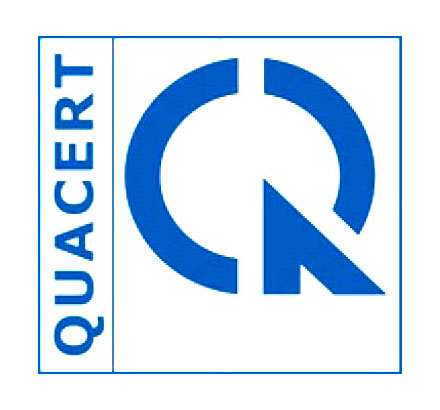
QCVN (Product Certification for Technical Regulation) is a mandatory certification system stipulated by Vietnam STAMEQ (Standard Quality and Measurement Authority) for maintaining quality, stability and hygiene of all products in Vietnam.
The mandatory items are:
The most of products have 3 years of certification period and require to have a posterior judgement. When a mandatory certification is obtained, ‘CR Mark’ is assigned.

The certification process depends on the type of product and certification that can be determined the type test. The type of certification exists in Scheme 1~8, however, Scheme 1, 5 and 7 are most typical certification types for uses. If the product to be certified is not subject to electrical safety and mandatory certification, the certification applicant can decide the certification scheme. The mandatory certification must choose the certification scheme 5 or 7 among these schemes.